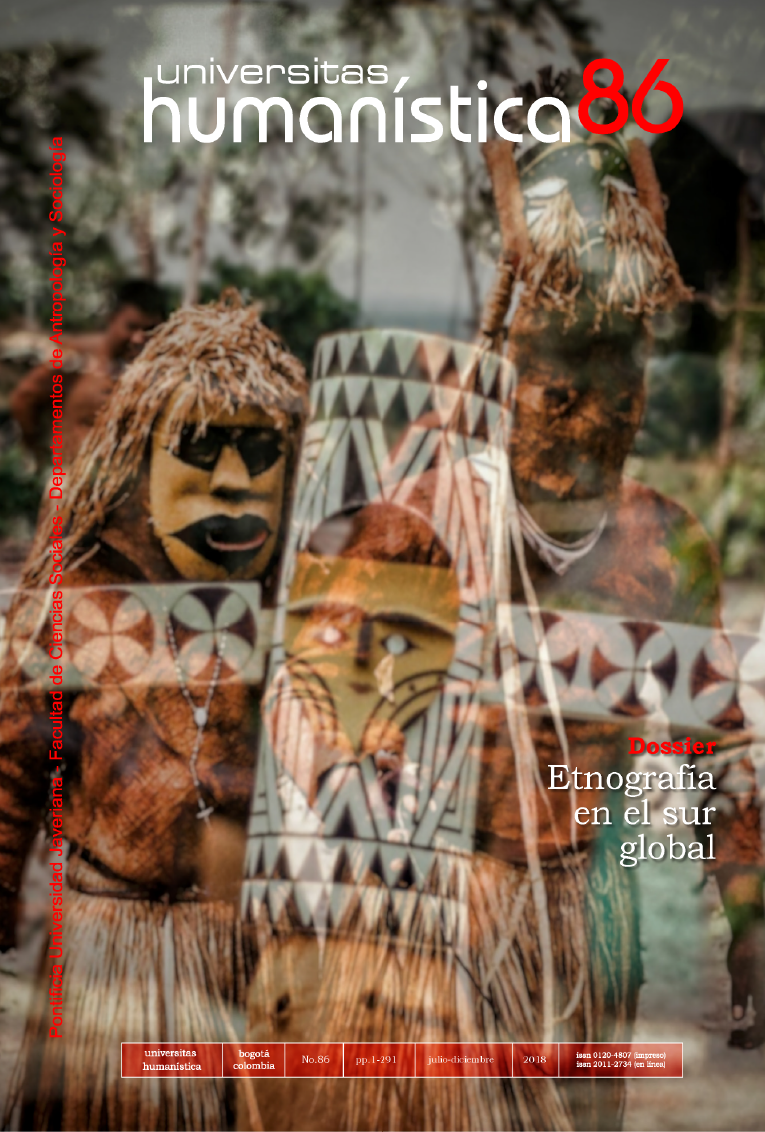Abstract
The key concepts of the anthropology of the Global South and the feminist epistemologies have allowed new reflections on ethnographic practice. From this framework, we would like to propose workshops as privileged methodologies for achieving a “strong reflexivity” on the ethnographic practice that is also collective and embodied, and not just focused on knowing what, but knowing how, and on aspects of research that are traditionally discarded. In the article, we combine the descriptions of the workshop exercises, the collective reflections emerged from them, and three theoretical artifacts for their analysis: the “corporal practices in research”, the “committed articulation” and the “off-field epistemologies”. As a result, we analyze the role of the body and the emotions in the process of researching, the networks and bonds that are generated, the aspects involved in our commitment to these processes; the power relations and the different forms of epistemic violence in research practice; the dilemmas, the meetings and misunderstandings between research and activism.

This journal provides immediate open access to its content on the principle that making research freely available to the public, encourages greater global exchange of knowledge.
The journal Universitas Humanística is registered under a Creative Commons Attribution 4.0 International Public License. Thus, this work may be reproduced, distributed, and publicly shared in digital format, as long as the names of the authors and Pontificia Universidad Javeriana are acknowledged. Others are allowed to quote, adapt, transform, auto-archive, republish, and create based on this material, for any purpose (even commercial ones), provided the authorship is duly acknowledged, a link to the original work is provided, and it is specified if changes have been made. Pontificia Universidad Javeriana does not hold the rights of published works and the authors are solely responsible for the contents of their works; they keep the moral, intellectual, privacy, and publicity rights.
Approving the intervention of the work (review, copy-editing, translation, layout) and the following outreach, are granted through an use license and not through an assignment of rights. This means the journal and Pontificia Universidad Javeriana cannot be held responsible for any ethical malpractice by the authors. As a consequence of the protection granted by the use license, the journal is not required to publish recantations or modify information already published, unless the errata stems from the editorial management process. Publishing contents in this journal does not generate royalties for contributors.



